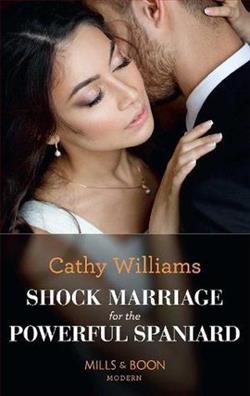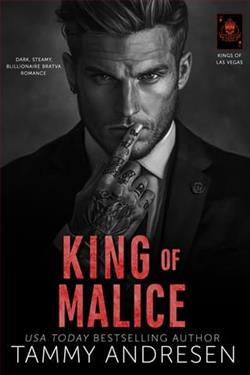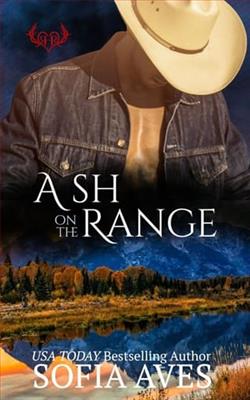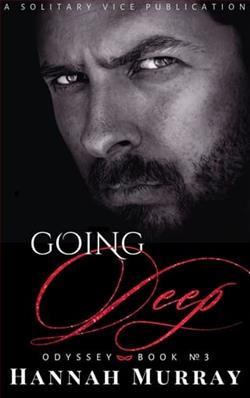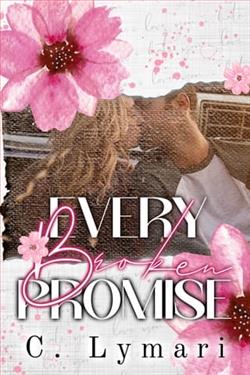Page 69 of Warrior Queen
Llacheu turned his head, desperation on his face, his eyes fixing on me again. “Tell me it’s not true.” A plea. A child facing the death of someone close for perhaps the first time in his life. Yes, he’d have grown up knowing death existed– seen it every day amongst the livestock, known his mother had lost babies after his birth. But this was his friend, his cousin– the boy he’d spent his childhood with. Boys didn’t die– they had their lives ahead of them stretching off to the unseen horizon of old age. Like the young in my old world, death must have been a thing that happened to others, not to boys like Rhiwallon.
“It’s true.” My voice came out taut and gruff. “I’m sorry, Llacheu.”
He gave another convulsive twist and Arthur let him go. Without a word, he fled, diving down one of the side alleys between the buildings. Gone.
Arthur heaved a sigh. “He needs time by himself to get used to it, as do Cei and Coventina. Rhiwallon won’t be the first friend he loses.” He sounded tired. With another deep sigh he caught my arm. “Come, let’s go inside.”
*
Returning home renewedthe mourning we’d spent more than a week trying to forget. For all the wives and mothers of the men who’d died, their loss was fresh and raw. It was a somber company who ate that night in the Great Hall, with no entertainment save Gwalchmei with his mournful paean for the dead as the meal drew to a close. We all sat in silence, as the words of his beautiful elegy rose toward the rafters, every one of us with someone lost held close in our hearts.
Neither Cei nor Coventina came to the hall. And although some of the older boys of the fortress were present, Llacheu was conspicuous by his absence. I longed to go and find him, to hug him and try to make him feel better, even though instinct told me nothing would. With his mother married off and no longer living in the fortress, who else did he have but me? Now Rhiwallon was gone.
When the paean’s last words were still echoing round the lofty hall, I rose quietly and slipped off to our chamber, unable to contain my grief. Not just for Rhiwallon, but for all the warriors we’d lost. Him, mostly, though.
A couple of oil lamps on the table created a circle of warm light, throwing the rest of the room into deep shadow. On the far side, our big, fur-strewn bed rested up against the wall, between the chests where Arthur and I kept our clothes. A sense of peaceful quiet pervaded the room, in sharp contrast to the sorrow that had drenched the Hall, as though this were a different world to the one of loss without.
A tap on Maia’s door, where she slept with the children, Rheagan too tonight, brought her hurrying to help me out of my gown, which had inaccessible lacing down the back. She worked with deft fingers and soon had me stepping out of the soft, pale-blue gown and into a clean linen undershirt.
“’Ow’d it happen, then?” she asked as she brushed out my waist-length hair for me. “If’n you don’t mind me askin’?”
I shook my head. “How does any death in battle happen? By accident. By being in the wrong place at the wrong time.” Bitterness laced my words. She fell silent, and as soon as my hair was re-braided, crept back to her small charges.
I brushed my teeth and thought determinedly about them to keep my mind from straying back to Coventina. As most people appeared to have reasonable dentition, perhaps this regime worked, although that might also have been thanks to the lack of sweet things available to eat. My father had once told me the Romans used to rinse their mouths with urine, Portuguese being thought the best. Thank goodness that habit hadn’t been adopted by the population of post-Roman Britain. Small mercies.
I climbed into bed and snuggled down, listening to the fast-diminishing noises in the hall carrying over the partition wall, and still battling not to think of what Coventina must be going through right now. Although sleep seemed far away, I must have eventually dozed off, because the sound of the door from the Hall opening woke me.
The still flickering oil lamps cast their light over Arthur as he set down a jug of wine on the table and pulled out one of the chairs. With unsteady fingers he unbuckled his belt and threw it on the floor. His tunic followed, then his boots, as though he were preparing to come to bed. But no, he sat down heavily in the chair in just his undershirt and braccae, and with shaking hands filled a goblet to the brim.
Oh no. Drunk again. Since we’d left Ebrauc he’d had little opportunity to indulge, as we didn’t carry enough alcohol with us on the march. But now he was home… was he going to make a habit of this drowning of his sorrows? I sat up in bed.
“Go back to sleep,” he said, without looking at me.
I pushed the covers back. “I can’t.”
“Then that makes two of us.” I’d lain beside him every night in our camps, and seen for myself how sleep had eluded him. When it came, it brought nightmares, from which I had to shake him awake before his men heard him shouting. I’d not had much sleep myself on the journey back from Ebrauc.
I set my bare feet on the wolf skin beside our bed and stood up. “Come to bed. I need you to hold me.”
He shook his head, leaning his elbows on the table and still not looking in my direction. “No. Not yet. I’ve drinking still to do.” He drained the goblet and poured a second.
I padded across the floor to the table. “Drinking won’t chase away your demons.”
He stared fixedly at the goblet in his hands. “Who says I have them?”
I wanted to take him in my arms and do the chasing away myself. Instead, I put a gentle hand on his shoulder. “I do. Drinking will only make your nightmares worse, not better.”
“Not if I drink enough.” He drained half the second goblet in one gulp. “Then their dead faces might not come to reproach me every night.”
If only I’d studied psychology instead of bloody English. Of all the subjects least likely to be of use in the post-Roman Dark Ages, English must have capped the lot.
I took a breath. “Today you told Llacheu he had to face things like a man. You asked a child to do something you’re not willing to do yourself. If you were, you wouldn’t be drunk right now.” I rubbed his shoulder as he stiffened under my touch. “You have to accept that sometimes you’ll feel grief. That sometimes you can’t do anything to change things. That you’re not responsible for Rhiwallon’s death… nor Geraint’s.”
He set the goblet down, still holding its ornate, twisted stem and not looking up at me. “I see their faces every night, Gwen, staring at me out of their dead eyes.” His voice faltered, filled with desperate hopelessness. “Sometimes they don’t evenhaveeyes– the crows have been there first.” He shook his head. “Why? Why now? I’ve seen men die many times before. Why do I feel like this now? Why is Geraint back inside my head after being so long forgotten? Why won’t Rhiwallon’s shade leave me in peace?”
I put my other hand on his back, bending low so my face was close to his. He didn’t look up. “Because you wrongly think it’s your fault he died. And it’s not. That was just one of the many battles you’ve fought. Men have died in all of them, with more to come. Rhiwallon was born to be a warrior– to fight in battles for his king and todiea warrior. Just as his father was, and you. You couldn’t have denied him that.” I couldn’t hide the cracking in my voice as I realized what I was saying. “It’s not your fault.”
His hair smelled of woodsmoke. Hopefully, I’d chosen the right things to say and wouldn’t make everything worse with my own incompetence. “You’re no more guilty of their deaths than you are of the deaths of any of your men. Rhiwallon’s death has opened up your memories of Geraint and how he died. You were just a child then, yourself, not a warrior. A child should never see things like that.”








